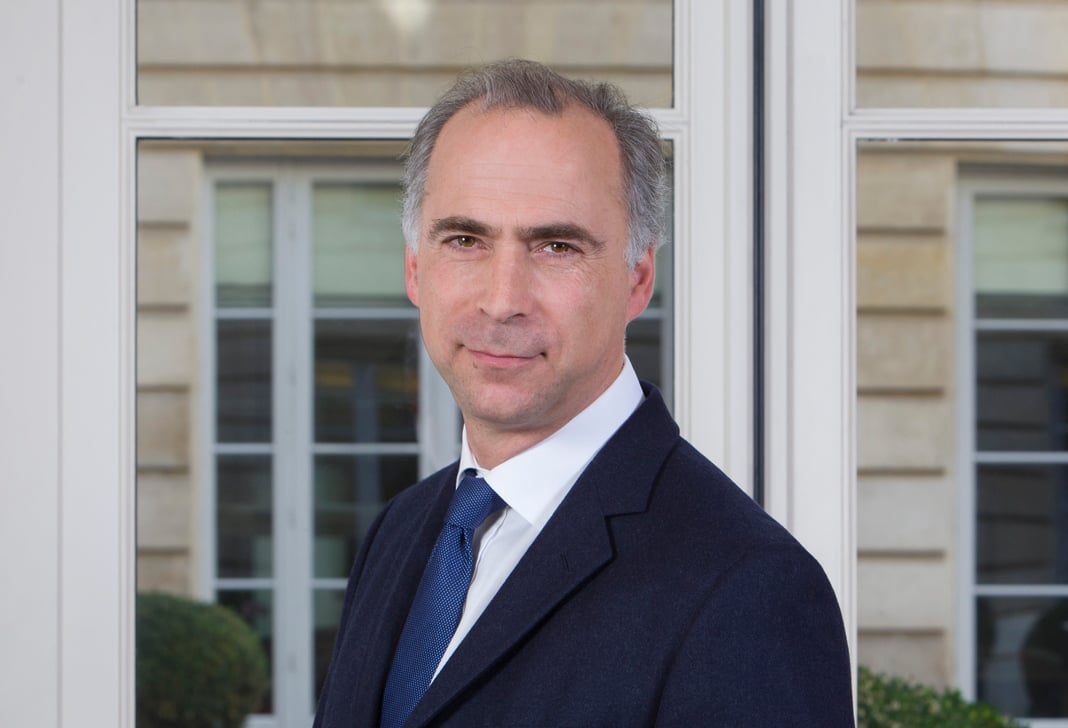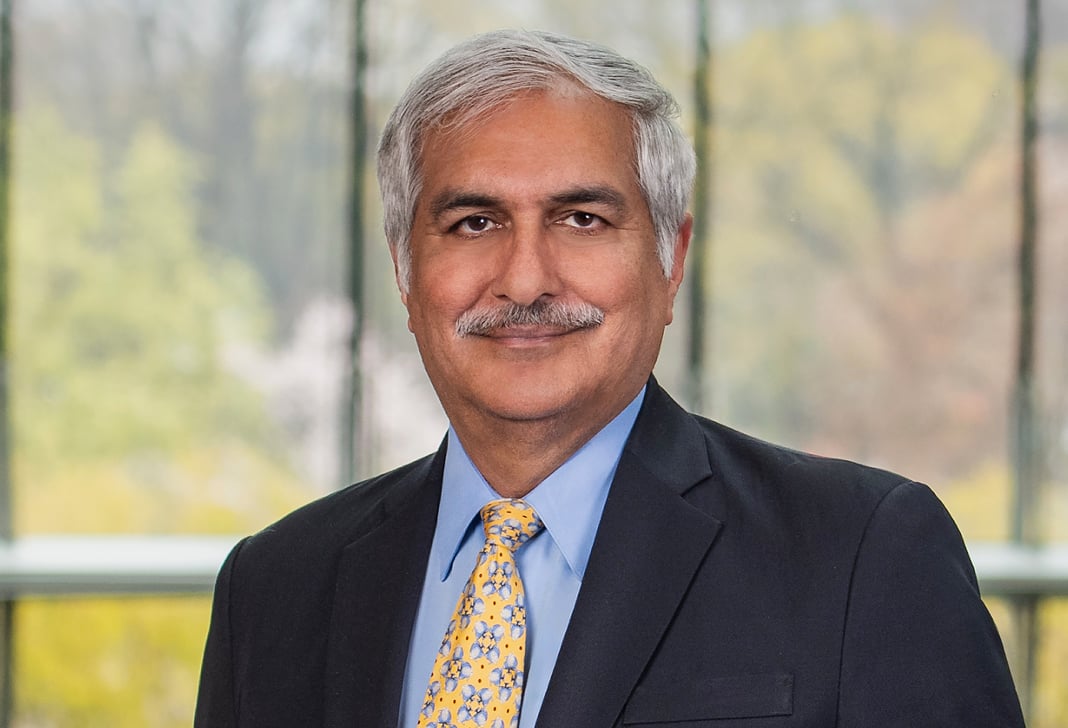
Africa Legal News
Read the full Africa Legal News.
NOTE FROM THE EDITOR
Goodwill
By Javade Chaudhri, Washington
Rémy Fekete, Paris
It seems that news and legal developments on the African continent are often seen through the prism of pessimism, even during times of robust economic growth and encouraging signs of adherence to the rule of law in ways large and small. We think that this is a time for investors and institutions to look on the bright side and with measured optimism and goodwill.
At a time when goodwill, praised by Kant, has benefited from the enthusiasm that Macronism has generated far beyond French borders, let us pause for a moment to seek this "calm desire for the happiness of others" (David Hume, Essays Moral and Political, Edinburgh, 1742) and apply it to current affairs on the African continent. While the situation is more clouded on other political fronts, we see a lot of good news.
In Angola, President dos Santos, in power since 1979, seems ready to peacefully hand over power to João Lourenço. In the Democratic Republic of Congo, we are hoping that the gradual withdrawal of President Kabila (expected to occur at the end of this year) will prevent further violence. In Nigeria, during the illness of the Muslim President Buhari, the Christian Vice President Osinbajo is carrying out his duties and preparing for the possibility of a smooth succession. In Kenya, the elections were largely peaceful and deemed fair by international observers, and although a legal claim has been filed by the losing political party, it is encouraging that it is a legal process that is being pursued instead of the violence of the last elections. In South Africa, although political turbulence continues, the process of selecting a new leader for the ruling party (and eventually a new President) appears to be proceeding in an orderly manner.
The health sector is developing at a fast pace, with the possibility of establishing research centers in West Africa being studied, pharmaceutical production centers being developed in Southern Africa, and polyclinics multiplying or being renewed as recently as those in Bamako, Mali. Middle Eastern capital is quickly moving toward the African continent, most notably in the production of electricity, and during the past five years, American investors have pulled out all the stops to push their interests through and have remained the main source of direct foreign investment in Africa.
Even the most skeptical acknowledge that "the violence of facts have at least the advantage of bringing us back down to Earth" (Yves Michaud, "Contre la bienveillance," Editions Stock, 2016). The legal and economic news reported in Jones Day's new Africa Legal News shows that beyond goodwill, Africa is accelerating its accomplishments through major projects and, at the same time, myriad new initiatives in a swift, sustainable, cost-effective, and inclusive way.
We must note, however, that not all signs are positive, and doing business in any part of Africa will continue to require careful planning, risk mitigation and management, and creative strategies and structures. In the mining sector, there have been a number of actions by various African states that have dampened investor enthusiasm, from Tanzania and Zambia to Mali and the Democratic Republic of Congo.
We hope you had a good summer in the Northern Hemisphere. Best wishes!
FINANCING/BANKING
Egypt
Several Egyptian banks, such as the Misr Bank, the Egyptian National Bank, and the Commercial International Bank, have decided to end restrictions on the use of bank cards abroad. These restrictions, adopted in 2016, were designed to fight the black-market currency exchange. The Misr bank removed the restrictions imposed last year on purchases, while maintaining the limits on withdrawals of cash in foreign currency.
Gambia
The World Bank will provide Gambia with budget support of approximately $56 million to help the new government satisfy its deficit and provide basic public services.
Nigeria
In July, the Kano regional parliament passed a law creating a fund (Kheftfund) to ensure sustainable financing of the health sector in Nigeria. The law is expected to mobilize $7 million a year according to Aminu Garba, the founder of the ONH Africa Health Network.
DIGITAL CODE
Benin
On June 13, 2017, the deputies of the National Assembly of the Republic of Benin adopted law No. 2017-20, establishing the Digital Code for the Republic of Benin ("Code"). The law will be promulgated after its validation by the Constitutional Court of Benin. It will bring together all the legal provisions applicable to all legal aspects of digital activities in the Republic of Benin. The Code is the result of a collaborative effort between all the players in the digital sector (especially the Ministry of the Digital Economy and Communication, the Ministry of Justice, the Ministry of the Interior and Public Safety, the Regulatory Authority of Electronic and Postal Communications, and the National Commission on Computer Technology and Freedom). Benin is the first Member State of the Community of West African States (ECOWAS) to undertake codification of texts relating to all digital activities.
Ethiopia
On June 12, 2017, Ethiopia finalized the implementation of an electronic visa service for international visitors to Ethiopia. The e-visa is valid for a period of 30 or 90 days after the date of its approval.
South Africa
Microsoft has announced the opening of new data centers in Johannesburg and Cape Town for the year 2018.
ENERGY/MINING
South Africa
The South African government is planning to grant the first shale gas licenses in its territory beginning in September 2017. The Minister of Mineral Resources is currently reviewing five applications for licensing. The identities of three of these five companies are Royal Dutch Shell, Falcon Oil and Gas, and Bundu Gas & Oil. The licenses granted will be valid for a period of three years.
On June 15, 2017, South Africa adopted a new mining code requiring 30 percent "black" shareholders in mining companies and 50 percent "black" South Africans for new prospecting licenses.
Gabon
On May 8, 2017, the Gabonese Head of State announced the revision of the Gabonese oil code.
Equatorial Guinea
On May 25, 2017, Equatorial Guinea became the sixth African country to become a member of the Organization of Petroleum Exporting Countries ("OPEC"). As a consequence, it must comply with OPEC's policy of reducing oil production and must reduce their production by around 5 percent. (Its GDP has already declined by almost 6 percent since 2016).
Uganda
The Ugandan judiciary has set up a court specializing in the recognition of fraud cases in the national power grid. The authority will mainly deal with cases of illegal connections to the power grid.
Ethiopia
Sekota Mining a company formed by Luciano Frattolin and Being CBRF Technology Group have entered into a 20-year concession to extract iron ore in the Amhara region of Ethiopia. The project is anticipated to cost half a billion dollars.
INFRASTRUCTURE
Burkina Faso
On May 16, 2017, Orange began to deploy 580 km of optical fiber from the capital Ouagadougou to the border with the Ivory Coast. This roll-out complements the deployments being made by the state, in particular towards the border with Ghana, and the planned installation of a virtual fiber optic landing point to Ouaga 2000 before the end of the year.
Ivory Coast
Chinese Foreign Minister Wang Yi announced that about $2.5 billion has already been committed for some 10 projects in cooperation between China and the Ivory Coast, with more than $7 billion for projects presently under negotiation. The projects include infrastructure for roads, railways, land, marine, and agricultural needs. Long term, the two countries are looking at a final cooperation portfolio of $9.5 billion.
Djibouti
Law No. 2017-186, on Public-Private Partnerships ("PPP"), was adopted on May 29, 2017, in Djibouti. This law targets the determination of the scope, rules, and basic principles applicable to PPPs. It introduces provisions on governance, contracting arrangements, and dispute settlement procedures. This legal framework also provides for the creation of entities essential to the control and supervision of PPPs.
MEDIA
Senegal
On June 20, 2017, Senegalese deputies unanimously adopted a new press code. The new code replaces the 1996 law on social communication media and the journalism and technical professions. One of the project's measures is the decriminalization of press offenses, hitherto punishable by imprisonment.
POLITICS/DIPLOMACY/JUSTICE
ECOWAS
Togolese President Faure Gnassingbe was elected to head ECOWAS on Sunday, June 5, 2017. He replaces Liberian President Ellen Johnson Sirleaf.
Gabon
With an eye to revising the Gabonese Nationality Code, the Gabonese Head of State has taken it upon himself to introduce a specific provision facilitating access to Gabonese nationality to those Afro-descendants who express a need for the Gabonese nationality. In this way, the Gabonese Republic has positioned itself as the first African state to recognize the right of return for the descendants of Africans deported during the period of slave trade.
Kenya
The African Court on Human and Peoples' Rights ("ACHPR") found Kenya guilty of violating the rights and freedoms of the Ogiek by driving them out of their ancestral lands. Having won their case, the complainants now have a two-month deadline to submit their claims to the ACHPR for reparations.
WHO
On May 24, 2017, the Ethiopian Tedros Adhanom Ghebreyesus was elected as the new Director-General of the World Health Organization (WHO), becoming the first African to head the UN agency.
CEMAC
As part of the initiatives implemented to guarantee the free movement of persons and goods within the Economic and Monetary Community of Africa ("CEMAC"), financial experts invited Member States to set up CEMAC passports by December 31, 2017.
ICT/TELECOMMUNICATIONS
Kenya
Vodafone has just transferred to Vodacom, its South African subsidiary, 35 percent of its shares in the Kenyan telephone operator Safaricom. This operation has an estimated value of $2.6 billion and makes it possible for the British operator to increase its stake to 70 percent of the capital.
Liberia
Orange has launched its brand in Liberia after completing in April, through its subsidiary Orange Côte d'Ivoire, the 100 percent acquisition of Cellcom, the leading mobile operator in the country.
Tanzania
The general director of Viettel, and seven foreign nationals, were convicted for fraud (misappropriation of the receipt and transmission of incoming international traffic) and were fined 689 million shillings ($309,289).
Tanzania has recently enacted some significant restrictions on mining operations in the country and has assessed a US$190 billion penalty on a foreign investor.
Ivory Coast
Last June, Orange Ivory Coast launched its new "Orange TV" service for customers with a subscription to the fixed internet and 3G or 4G mobile internet via the "Orange TV" application.
Senegal
Last June, the Senegal Regulatory Authority for Telecommunications and Posts (ARTP) awarded three MVNO (Virtual Mobile Operator) licenses: Future Media Group (Gfm, created by singer Youssou Ndour), Origines SA (El Hadj Ndiaye), and Sirius Telecom Africa (Mbackiyou Faye).
Zambia
In June, the Government of the Republic of Zambia adopted a new telecommunications licensing regime. The new licensing regime now allows any operator, including internet service providers (ISPs) or even fiber optic infrastructures, to provide "converged services." It is understandable that, through global licenses, competition will be accelerated, especially on broadband internet.
INVESTMENTS
Egypt
On May 7, 2017, the House of Representatives voted into effect a new law on investment. This law replaces the existing Investment Law of 1997 and seeks to promote investment by providing for nondiscrimination based on the nationality of investors and by limiting the possibility of suspension or termination of licenses or investors. The new law also introduces reductions in and exemptions from customs duties, as well as tax reductions and the facilitation of financial transfers.
AUDIO-VISUAL
Algeria
The Ministry of Communication has sent a final warning to private television stations operating in Algeria without approval or accreditation. This warning was issued after the establishment of the Audiovisual Regulatory Authority (ARAV) and legislation regulating the audio-visual sector, in particular the process of obtaining approval. This legislation raises several conditions, including the exclusive right of Algerian nationals to act as shareholders and managers. Authorization would not be granted by the Ministry of Communication but by the government itself. The ministry has announced that only 10 channels will obtain approval. After the formal notice and the launch of a call for applications, many private television stations may be closed by the police while others might be accredited as foreign media.
Burkina Faso
Eutelsat Communications formalized the signing of a multiyear contract with the Burkinabe Broadcasting Corporation (SBT), a public broadcasting operator for Digital Terrestrial Television (DTT) in Burkina Faso.
This contract is part of the transition from analogue to all-digital television, currently in full acceleration phase in Burkina Faso.
Egypt
An Egyptian-Saudi chain was launched in June to compete with Qatar's BeIN sports group. The program "PBS Sports" will be available on Nilesat as a free service.
Senegal
Senegal adopted a bill authorizing the creation of the Société de Télédiffusion as part of the migration to DTT.
Jones Day publications should not be construed as legal advice on any specific facts or circumstances. The contents are intended for general information purposes only and may not be quoted or referred to in any other publication or proceeding without the prior written consent of the Firm, to be given or withheld at our discretion. To request reprint permission for any of our publications, please use our "Contact Us" form, which can be found on our website at www.jonesday.com. The mailing of this publication is not intended to create, and receipt of it does not constitute, an attorney-client relationship. The views set forth herein are the personal views of the authors and do not necessarily reflect those of the Firm.



